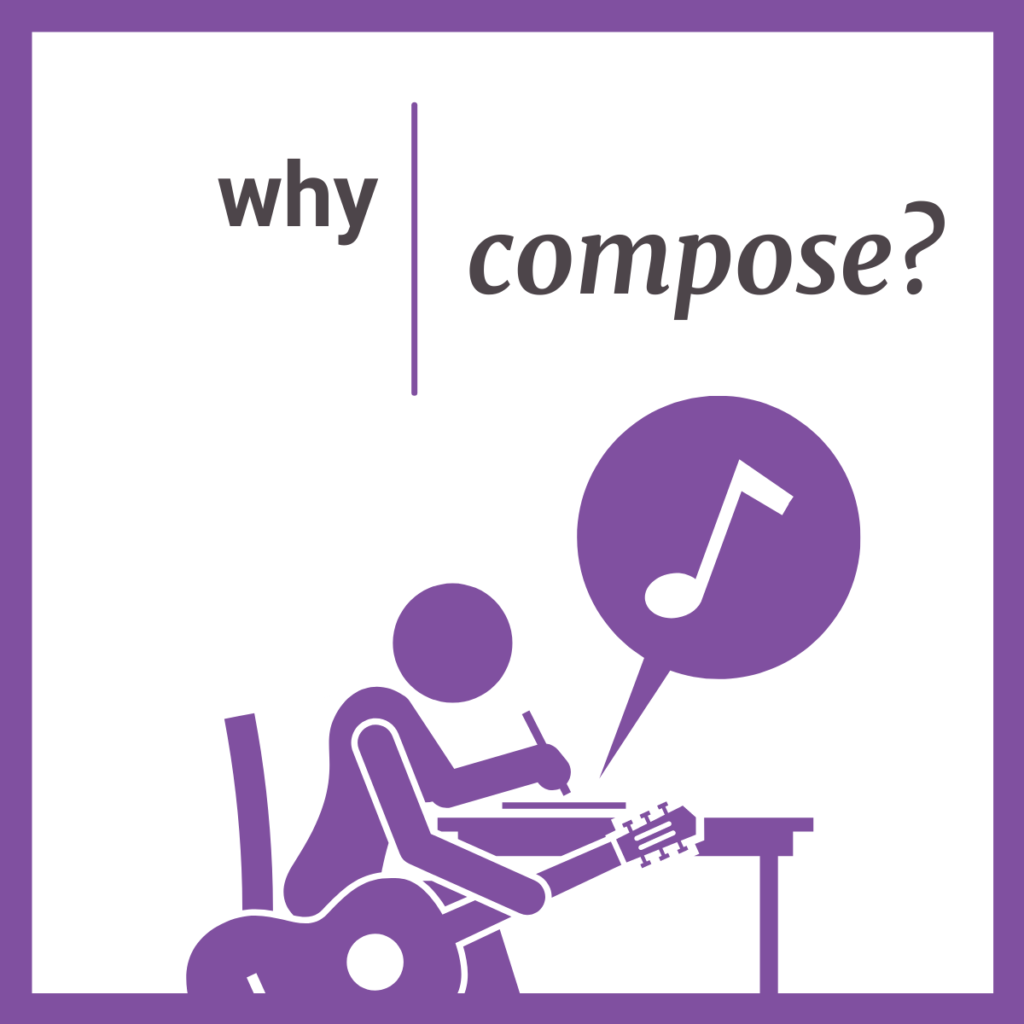Why Compose?
Everything you need to strengthen your musicianship skills

Composition, just like performance, is a beneficial way to apply your skills and foster creativity.
In the same way playing/singing gives you a chance to combine your practical technique, sound production and interpretation, composition is informed by your musical understanding.
By manipulating and experimenting creatively with the concepts and elements of your own musicianship, you consolidate, contextualise and really Know.
After all, if we can compose a melody that sounds great using the Mixolydian Mode it means we are at least starting to understand the Mixolydian Mode, and so on.
Benefits
- if you can create, it means you truly understand the musical concepts you are composing with, beginning with the notes and rhythms and moving forward to including phrasing, form, harmony etc.
- composition gives you a very good understanding of the types of things that make logical melodies, rhythms and chord progressions (and therefore learn to look for and expect them in your transcriptions)
- composition builds skills – being able to create short logical melodies, rhythms etc. allow you to anticipate what you might hear (if you need to “fake it” in the exam itself)
- composition cultivates your own creative and expressive voice – anyone can give it a go
- composition can give you a way to hone in on a particular concept – if you’re struggling with a certain rhythmic grouping, try and make it the focus of your composition until you really understand it
- composition is the best way to reinforce what you think you Know!
- composition brings together other musical skills – performance, performance analysis, musicianship etc.
Example from page 97 of the Musicianship & Aural Training for the Secondary School Level 1 books:

Example from page 18 of the Musicianship & Aural Training for the Secondary School Level 3 books:

Important note:
Don’t be afraid to challenge yourself with composition. It may not feel entirely comfortable at first, particularly if you’ve never really tried to create music before, but in this way having the structure of a certain concept might help.
For example, rather than just staring at a blank staff having no idea what to write, you can draw inspiration from the concepts you’re working on. Learning about Ab Major Scale? Try to compose a short melody in that key. Getting your head around triplets? Pop them in your piece.
Notating what you create is important. Though there are several ways to do this, putting pencil to manuscript paper is best for consolidating all the skills you’re building.
Read on for more….
Although composition, and therefore composers, generally study what’s come before – the practices and approaches of Western classical music – it really has a broader meaning. It’s essentially the creation of any new musical work and can also include instances of spontaneous improvisation. Composition is basically an ordering of musical sounds, which can be notated conventionally or preserved digitally.
Use these resources to help you – Rhythmic Composition Sheet & Melodic Composition Sheet

